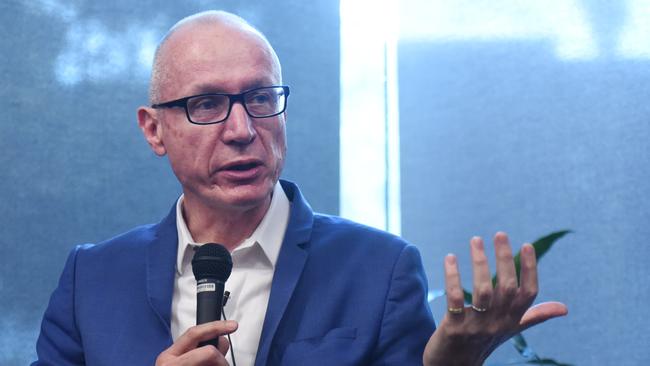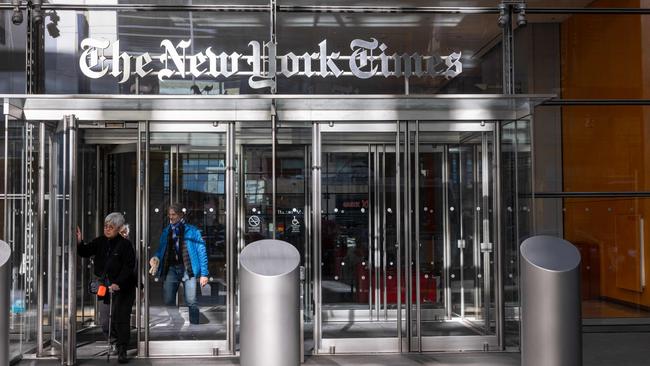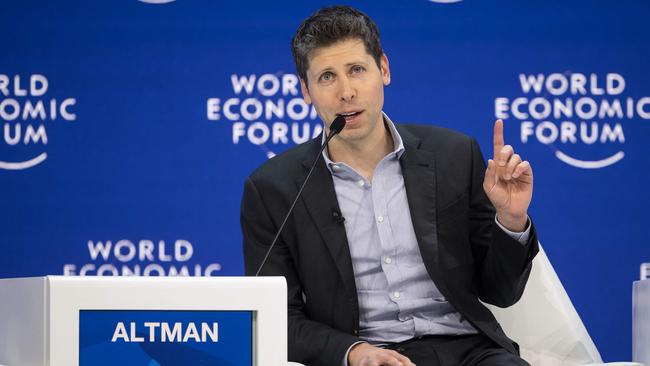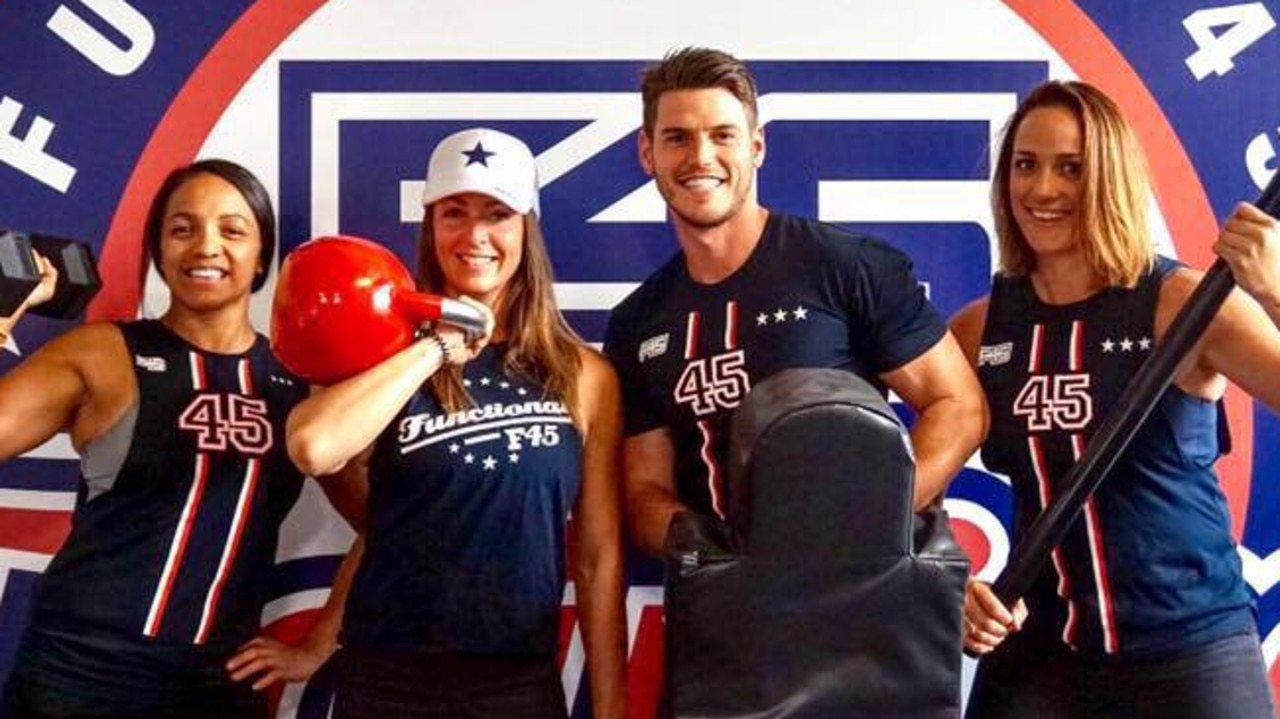‘Wooing, not suing’: News Corp in advanced talks with AI companies over content deals
News Corp chief Robert Thomson says ‘courtship is preferable to courtrooms’ as the media titan enters talks to become a core content provider to AI companies.

SA Business
Don't miss out on the headlines from SA Business. Followed categories will be added to My News.
Media company News Corp is “wooing, not suing” as it enters advanced negotiations to become a core content provider to AI companies, chief executive Robert Thomson says.
Mr Thomson said News Corp aimed to set “meaningful precedents” with AI tech players, which rely on data and quality content, such as news articles and other media, to train their powerful engines.
Copyright has emerged as a key battlefield in the AI race. The New York Times is suing Microsoft and ChatGPT owner OpenAI over claims it used its content without permission, while Getty Images is taking Stability AI to court, alleging a similar breach.
Microsoft – which has overtaken Apple as the world’s most valuable company with a market capitalisation of $US3.08 trillion – says it will indemnify its customers over any copyright lawsuits as it accelerates the rollout of its suite of AI-powered products.
Mr Thomson said News Corp – owner of this masthead – was taking a different approach. He said it had advanced “crucial negotiations” with tech companies to strike content partnerships. He said “courtship is preferable to courtrooms”.
“We expect to be a core content provider for generative AI companies who need the highest quality, timely content to ensure the relevance of their products,” Mr Thomson said.

“The corny, callow cliche is that AI companies are selling the ‘picks and shovels’ during this seeming gold rush; well, we are selectively reselling gold nuggets and those crucial negotiations are at an advanced stage.
“It is reassuring that certain digital companies appreciate the value of integrity, quality and creativity, and while certain other media companies prefer litigation, we prefer consultation, as the former is merely creating a gold rush for lawyers.”
But Mr Thomson, who was speaking as News Corp released its second quarter financial results, said those who ripped off the company’s content without permission were stealing.
“They are undermining creativity. Counterfeiting is not creating, and the AI world is replete with content counterfeiters,” he said.
The New York Times said in its lawsuit that it believed it was among the largest sources of proprietary information for OpenAI and Microsoft’s AI products. Their AI tools divert traffic that would otherwise go to the Times’ web properties, depriving the company of advertising, licensing and subscription revenue, the suit said.
“Times journalism is the work of thousands of journalists, whose employment costs hundreds of millions of dollars per year,” the Times said in its complaint. “Defendants have effectively avoided spending the billions of dollars that The Times invested in creating that work by taking it without permission or compensation.”

But Mr Thomson complimented OpenAi chief executive Sam Altman, who he said has “clear understanding of the social importance of journalism”.
“We’re certainly not naive as well about the potentially positive and negative impacts of AI on our journalism, our creativity, our content,” Mr Thomson said.
“We’ve had almost two decades of distribution dominating creation and almost 60 per cent or so journalists have lost jobs in the US, and – candidly – unfortunately, a certain percentage of that is down to journalistic pomposity and prize consciousness, not audience consciousness and relevance consciousness.
“But … gen AI is a hyper-effective form of derivative distribution. It’s retrospective, not prospective and the thoughtful AI companies understand that fact, and so that’s why on this occasion I would like to highlight the thoughtfulness of Sam Altman.
“Thoughtful people do understand that counterfeiting is not creating and crucially, in this exceedingly erratic era, we have deep facts, not deep fakes.”
Mr Thomson declined to reveal further details of the negotiations with AI companies, citing confidentiality but said News Corp was “dealing with willing partners”.
“It is fair to say that we’ve been leading the intellectual debate among media companies on AI and also fair to say that we’re probably leading the commercial discussions,” he said.
“We speak of the AI hallucinating, and yet we as a society are hallucinating if we don’t focus firmly on provenance at a time when even the very words misinformation and disinformation have themselves become sources of misinformation and disinformation.
“Too many media companies are scanning the landscape and presuming that they have a glimpse of the future, and yet they cannot distinguish between trendiness and actual trends.”
Meanwhile, Meta said it would begin to penalise users who upload AI-generated content to its platforms and fail to disclose its origins.





